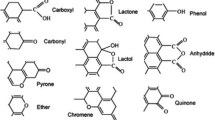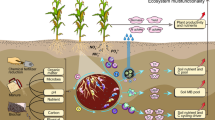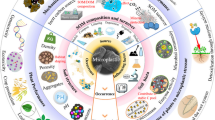Abstract
Organic materials (OM) are considered as potential soil amendment for its positive impact on soil physical properties such as soil aggregation. Aggregate stability is indicated by mean weight diameter (MWD), which is influenced by the OM quality components. However, OM quality components that control soil aggregation are inconsistent from individual study. The present study conducted a meta-analysis of 789 paired comparisons from 48 peer-reviewed publications to investigate how different types of OM coupling with their quality components can potentially influence soil aggregation. OM application significantly enhanced the aggregation by 148±18%, regardless of OM types (p < 0.001). There was a higher favorable influence of sugar-enriched easily decomposed organic material (EOM), which preferentially increased the aggregation by 314±96% and consequently, sugar showed a significant positive linear relationship with aggregation (p < 0.05). Cereal straw higher with cellulose and hemicellulose resulted in a lower aggregation by 152±62% compared to EOM, while a negative impact of cellulose on aggregation had found (p < 0.05). In addition, manure rich with lignin and aromatic C exhibited the aggregation response by 70±31%, and the regression analysis revealed that lignin and aromatic C suppressed the aggregation (p < 0.05). Moreover, aggregation was intensified in alkaline soil, while there was a greater impact in loam to clay soil with a higher initial SOC during OM application. The current meta-analysis demonstrates that OM application improve the soil aggregation, which can be accounted by their sugar, cellulose, lignin and aromatic C functional quality components.










Similar content being viewed by others
Data availability
The data that support the findings of this study are available on request from the corresponding author.
References
Abiven S, Menasseri S, Angers DA, Leterme P (2007) Dynamics of aggregate stability and biological binding agents during decomposition of organic materials. Euro J Soil Sci 58:239–247. https://doi.org/10.1111/j.1365-2389.2006.00833.x
Abiven S, Menasseri S, Chenu C (2009) The effects of organic inputs over time on soil aggregate stability–A literature analysis. Soil Biol Biochem 41:1–12. https://doi.org/10.1016/j.soilbio.2008.09.015
Alami Y, Achouak W, Marol C, Heulin T (2000) Rhizosphere soil aggregation and plant growth promotion of sunflowers by an exopolysaccharide-producing Rhizobium sp. strain isolated from sunflower roots. Appl Environ Micro 66:3393–3398. https://doi.org/10.1128/aem.66.8.3393-3398.2000
Ampong K, Thilakaranthna MS, Gorim LY (2022) Understanding the role of humic acids on crop performance and soil health. Front Agron 4:848621. https://doi.org/10.3389/fagro.2022.848621
Annabi M, Le Bissonnais Y, Le Villio-Poitrenaud M, Houot S (2011) Improvement of soil aggregate stability by repeated applications of organic amendments to a cultivated silty loam soil. Agri, Eco Environ 144:382–389. https://doi.org/10.1016/j.agee.2011.07.005
Balesdent J, Chenu C, Balabane M (2000) Relationship of soil organic matter dynamics to physical protection and tillage. Soil Till Res 53:215–230. https://doi.org/10.1016/S0167-1987(99)00107-5
Blanco-Canqui H, Lal R (2004) Mechanisms of carbon sequestration in soil aggregates. Critic Rev Plant Sci 23:481–504. https://doi.org/10.1080/07352680490886842
Bossuyt H, Denef K, Six J, Frey SD, Merckx R, Paustian K (2001) Influence of microbial populations and residue quality on aggregate stability. Appl Soil Ecol 16:195–208. https://doi.org/10.1016/S0929-1393(00)00116-5
Bronick CJ, Lal R (2005) Soil structure and management: a review. Geoderma 124:3–22. https://doi.org/10.1016/j.geoderma.2004.03.005
Bucka FB, Kölbl A, Uteau D, Peth S, Kögel-Knabner I (2019) Organic matter input determines structure development and aggregate formation in artificial soils. Geoderma 354:113881. https://doi.org/10.1016/j.geoderma.2019.113881
Chivenge P, Vanlauwe B, Gentile R, Six J (2011) Organic resource quality influences short-term aggregate dynamics and soil organic carbon and nitrogen accumulation. Soil Biol Biochem 43:657–666. https://doi.org/10.1016/j.soilbio.2010.12.002
Clark GJ, Sale PWG, Tang C (2009) Organic amendments initiate the formation and stabilisation of macroaggregates in a high clay sodic soil. Soil Res 47:770–780. https://doi.org/10.1071/SR09119
Cong J, Liu X, Lu H, Xu H, Li Y, Deng Y, Diqiang L, Zhang Y (2015) Available nitrogen is the key factor influencing soil microbial functional gene diversity in tropical rainforest. BMC Microbiol 15:1–10. https://doi.org/10.1186/s12866-015-0491-8
Denef K, Six J (2005) Clay mineralogy determines the importance of biological versus abiotic processes for macroaggregate formation and stabilization. Euro J Soil Sci 56:469–479. https://doi.org/10.1111/j.1365-2389.2004.00682.x
Du ZL, Zhao JK, Wang YD, Zhang QZ (2017) Biochar addition drives soil aggregation and carbon sequestration in aggregate fractions from an intensive agricultural system. J Soil Sediments 17:581–589. https://doi.org/10.1007/s11368-015-1349-2
Eiland F, Klamer M, Lind AM, Leth M, Bååth E (2001) Influence of initial C/N ratio on chemical and microbial composition during long term composting of straw. Microb Ecol 11391465:272–280. https://doi.org/10.1007/s002480000071
Filep T, Rékási M (2011) Factors controlling dissolved organic carbon (DOC), dissolved organic nitrogen (DON) and DOC/DON ratio in arable soils based on a dataset from Hungary. Geoderma 162:312–318. https://doi.org/10.1016/j.geoderma.2011.03.002
Fonte SJ, Yeboah E, Ofori P, Quansah GW, Vanlauwe B, Six J (2009) Fertilizer and residue quality effects on organic matter stabilization in soil aggregates. Soil Sci Soc Am J 73:961–966. https://doi.org/10.2136/sssaj2008.0204
Gentile R, Vanlauwe B, Kavoo A, Chivenge P, Six J (2011) Residue quality and N fertilizer do not influence aggregate stabilization of C and N in two tropical soils with contrasting texture. Nutr Cycl Agroecosyst 88:121–131. https://doi.org/10.1007/s10705-008-9216-9
Goebel MO, Bachmann J, Woche SK, Fischer WR (2005) Soil wettability, aggregate stability, and the decomposition of soil organic matter. Geoderma 128:80–93. https://doi.org/10.1016/j.geoderma.2004.12.016
Halder M, Liu S, Zhang ZB, Guo ZC, Peng XH (2021) Effects of residue stoichiometric, biochemical and C functional features on soil aggregation during decomposition of eleven organic residues. Catena 202:105288. https://doi.org/10.1016/j.catena.2021.105288
Halder M, Liu S, Zhang ZB, Guo ZC, Peng XH (2022) Effects of organic matter characteristics on soil aggregate turnover using rare earth oxides as tracers in a red clay soil. Geoderma 421:115908. https://doi.org/10.1016/j.geoderma.2022.115908
Halder M, Ahmad SJ, Rahman T, Joardar JC, Siddique MAB, Islam MS, Islam MU, Liu S, Rabbi S, Peng X (2023) Effects of straw incorporation and straw-burning on aggregate stability and soil organic carbon in a clay soil of Bangladesh. Geoderma Reg 32:e00620. https://doi.org/10.1016/j.geodrs.2023.e00620
He M, Jiang Y, HanZhu YW, Meng D, Li C, Cai H, Zhang J (2023) Rice Straw Biochar is More Beneficial to Soil Organic Carbon Accumulation and Stabilization than Rice Straw and Rice Straw Ash. J Soil Sci Plant Nutr 23:3023–3033. https://doi.org/10.1007/s42729-023-01256-w
Helfrich M, Ludwig B, Potthoff M, Flessa H (2008) Effect of litter quality and soil fungi on macroaggregate dynamics and associated partitioning of litter carbon and nitrogen. Soil Biol Biochem 40:1823–1835. https://doi.org/10.1016/j.soilbio.2008.03.006
Husain H, Dijkstra FA (2023) The influence of plant residues on soil aggregation and carbon content: A meta-analysis. J Plant Nutr Soil Sci 186:177–187. https://doi.org/10.1002/jpln.202200297
Islam MU, Guo Z, Jiang F, Peng X (2022) Does straw return increase crop yield in the wheat-maize cropping system in China? A meta-analysis. Field Crops Res 279:108447. https://doi.org/10.1016/j.fcr.2022.108447
Islam MU, Jiang F, Halder M, Liu S, Peng X (2023) Impact of straw return combined with different fertilizations on soil organic carbon stock in upland wheat and maize croplands in China: A meta-analysis. Crop and Environment 2:233–41. https://doi.org/10.1016/j.crope.2023.10.003
Islam MU, Jiang F, Halder M, Barman A, Liu S, Peng X (2024) Quantitative assessment of different straw management practices on soil organic carbon and crop yield in the Chinese upland soils: A data-driven approach based on simulation and prediction model. Eur J Agr 154:127092. https://doi.org/10.1016/j.eja.2024.127092
Jian S, Li J, Chen JI, Wang G, Mayes MA, Dzantor KE, Hui D, Luo Y (2016) Soil extracellular enzyme activities, soil carbon and nitrogen storage under nitrogen fertilization: A meta-analysis. Soil Biol Biochem 101:32–43. https://doi.org/10.1016/j.soilbio.2016.07.003
Johnson JMF, Barbour NW, Weyers SL (2007) Chemical composition of crop biomass impacts its decomposition. Soil Sci Soc Am J 71:155–162. https://doi.org/10.2136/sssaj2005.0419
Jones DL, Kielland K, Sinclair FL, Dahlgren RA, Newsham KK, Farrar JF, Murphy DV (2009) Soil organic nitrogen mineralization across a global latitudinal gradient. Glob Biogeochem Cycles 23:1. https://doi.org/10.1029/2008GB003250
Kiem R, Kögel-Knabner I (2003) Contribution of lignin and polysaccharides to the refractory carbon pool in C-depleted arable soils. Soil Biol Biochem 35:101–118. https://doi.org/10.1016/S0038-0717(02)00242-0
Krull ES, Baldock JA, Skjemstad JO (2003) Importance of mechanisms and processes of the stabilisation of soil organic matter for modelling carbon turnover. Funct Plant Biol 30:207–222. https://doi.org/10.1071/FP02085
Le Guillou C, Angers DA, Maron PA, Leterme P, Menasseri-Aubry S (2012) Linking microbial community to soil water-stable aggregation during crop residue decomposition. Soil Biol Biochem 50:126–133. https://doi.org/10.1016/j.soilbio.2012.03.009
Leelamanie DAL, Karube J, Samarawickrama UI (2013) Stability analysis of aggregates in relation to the hydrophobicity of organic manure for Sri Lankan Red Yellow Podzolic soils. Soil Sci Plant Nutri 59:683–691. https://doi.org/10.1080/00380768.2013.826568
Lehmann J, Joseph S (eds) (2015) Biochar for environmental management: science, technology and implementation. Routledge
Li J, Cooper JM, Li Y, Yang X, Zhao B (2015) Soil microbial community structure and function are significantly affected by long-term organic and mineral fertilization regimes in the North China Plain. Appl Soil Ecol 96:75–87. https://doi.org/10.1016/j.apsoil.2015.07.001
Li Y, Shen C, Wang Y, Xu L, Zhao Y, Yi S, Bai Y (2023) Alleviated environmental constraints and restructured fungal microbiome facilitate aggregate formation and stabilization in coastal mudflat saline soil amended by sewage sludge. Land Degrad Dev 2023:1–12. https://doi.org/10.1002/ldr.4668
Liu A, Ma BL, Bomke AA (2005) Effects of cover crops on soil aggregate stability, total organic carbon, and polysaccharides. Soil Sci Soc Am J 69:2041–2048. https://doi.org/10.2136/sssaj2005.0032
Liu S, Guo ZC, Halder M, Zhang HX, Six J, Peng XH (2021) Impacts of residue quality and soil texture on soil aggregation pathways by using rare earth oxides as tracers. Geoderma 399:115114. https://doi.org/10.1016/j.geoderma.2021.115114
Martens DA (2000) Plant residue biochemistry regulates soil carbon cycling and carbon sequestration. Soil Biol Biochem 32:361–369. https://doi.org/10.1016/S0038-0717(99)00162-5
Mondal S, Chakraborty D, Bandyopadhyay K, Aggarwal P, Rana DS (2020) A global analysis of the impact of zero-tillage on soil physical condition, organic carbon content, and plant root response. Land Degrad Dev 31:557–567. https://doi.org/10.1002/ldr.3470
Morgan RPC (2009) Soil erosion and conservation. John Wiley & Sons
Nichols KA, Halvorson JJ (2013) Roles of biology, chemistry, and physics in soil macroaggregate formation and stabilization. Open Agric J 7:107–117. https://doi.org/10.2174/1874331520131011003
Pulleman MM, Six J, Van Breemen N, Jongmans AG (2005) Soil organic matter distribution and microaggregate characteristics as affected by agricultural management and earthworm activity. Euro J Soil Sci 56:453–467. https://doi.org/10.1111/j.1365-2389.2004.00696.x
Puttaso A, Vityakon P, Rasche F, Saenjan P, Treloges V, Cadisch G (2013) Does organic residue quality influence carbon retention in a tropical sandy soil? Soil Sci Soc Am J 77:1001–1011. https://doi.org/10.2136/sssaj2012.0209
Rabbi SM, Minasny B, McBratney AB, Young IM (2020) Microbial processing of organic matter drives stability and pore geometry of soil aggregates. Geoderma 360:114033. https://doi.org/10.1016/j.geoderma.2019.114033
Rahman MT, Zhu QH, Zhang ZB, Zhou H, Peng X (2017) The roles of organic amendments and microbial community in the improvement of soil structure of a Vertisol. Appl Soil Ecol 111:84–93. https://doi.org/10.1016/j.apsoil.2016.11.018
Rahman MT, Liu S, Guo ZC, Zhang ZB, Peng XH (2019) Impacts of residue quality and N input on aggregate turnover using the combined 13C natural abundance and rare earth oxides as tracers. Soil Till Res 189:110–122. https://doi.org/10.1016/j.still.2019.01.005
Rasse DP, Rumpel C, Dignac MF (2005) Is soil carbon mostly root carbon? Mechanisms for a specific stabilisation. Plant and soil 269:341–356. https://doi.org/10.1007/s11104-004-0907-y
Rivera JI, Bonilla CA (2020) Predicting soil aggregate stability using readily available soil properties and machine learning techniques. Catena 187:104408. https://doi.org/10.1016/j.catena.2019.104408
Ruiz-Dueñas FJ, Martínez ÁT (2009) Microbial degradation of lignin: how a bulky recalcitrant polymer is efficiently recycled in nature and how we can take advantage of this. Microb Biotechnol 2:164–177. https://doi.org/10.1111/j.1751-7915.2008.00078.x
Sall SN, Masse D, Diallo NH, Sow TM, Hien E, Guisse A (2016) Effects of residue quality and soil mineral N on microbial activities and soil aggregation in a tropical sandy soil in Senegal. Euro J Soil Biol 75:62–69. https://doi.org/10.1016/j.ejsobi.2016.04.009
Sarker TC, Incerti G, Spaccini R, Piccolo A, Mazzoleni S, Bonanomi G (2018) Linking organic matter chemistry with soil aggregate stability: Insight from 13C NMR spectroscopy. Soil Biol Biochem 117:175–184. https://doi.org/10.1016/j.soilbio.2017.11.011
Schöning I, Morgenroth G, Kögel-Knabner I (2005) O/N-alkyl and alkyl C are stabilised in fine particle size fractions of forest soils. Biogeochem 73:475–497. https://doi.org/10.1007/s10533-004-0897-0
Shepherd TG, Saggar S, Newman RH, Ross CW, Dando JL (2001) Tillage-induced changes to soil structure and organic carbon fractions in New Zealand soils. Soil Res 39:465–489. https://doi.org/10.1071/SR00018
Six J, Feller C, Denef K, Ogle S, de Moraes Sa JC, Albrecht A (2002) Soil organic matter, biota and aggregation in temperate and tropical soils-Effects of no-tillage. Agronomie 22:755–775. https://doi.org/10.1051/agro:2002043
Six J, Bossuyt H, Degryze S, Denef K (2004) A history of research on the link between (micro) aggregates, soil biota, and soil organic matter dynamics. Soil Till Res 79:7–31. https://doi.org/10.1016/j.still.2004.03.008
Soil Survey Staff (2014) Keys to soil taxonomy (12th ed.). Washington, DC: USDA-Natural Resources Conservation Service
Sradnick A, Murugan R, Oltmanns M, Raupp J, Joergensen RG (2013) Changes in functional diversity of the soil microbial community in a heterogeneous sandy soil after long-term fertilization with cattle manure and mineral fertilizer. Appl Soil Ecol 63:23–28. https://doi.org/10.1016/j.apsoil.2012.09.011
Tang J, Mo Y, Zhang J, Zhang R (2011) Influence of biological aggregating agents associated with microbial population on soil aggregate stability. Appl Soil Ecol 47:153–159. https://doi.org/10.1016/j.apsoil.2011.01.001
von Lützow M, Kögel-Knabner I, Ekschmitt K, Matzner E, Guggenberger G, Marschner B, Flessa H (2006) Stabilization of organic matter in temperate soils: mechanisms and their relevance under different soil conditions–a review. Eur J Soil Sci 57:426–445. https://doi.org/10.1111/j.1365-2389.2006.00809.x
Xiao C, Bolton R, Pan WL (2007) Lignin from rice straw Kraft pulping: Effects on soil aggregation and chemical properties. Bio Technol 98:1482–1488. https://doi.org/10.1016/j.biortech.2005.11.014
Zhang S, Wang R, Yang X, Sun B, Li Q (2016) Soil aggregation and aggregating agents as affected by long term contrasting management of an Anthrosol. Sci Rep 6:39107. https://doi.org/10.1038/srep39107
Zhao H, Shar AG, Li S, Chen Y, Shi J, Zhang X, Tian X (2018) Effect of straw return mode on soil aggregation and aggregate carbon content in an annual maize-wheat double cropping system. Soil Till Res 175:178–186. https://doi.org/10.1016/j.still.2017.09.012
Zhou P, Pan GX, Spaccini R, Piccolo A (2010) Molecular changes in particulate organic matter (POM) in a typical Chinese paddy soil under different long-term fertilizer treatments. Euro J Soil Sci 61:231–242. https://doi.org/10.1111/j.1365-2389.2009.01223.x
Acknowledgement
This study was granted by National Key Research and Development Program of China (2023YFD1900201), National Natural Science Foundation of China (U23A20222), and Khulna University Research and Innovation Center.
Author information
Authors and Affiliations
Corresponding author
Ethics declarations
Conflict of interest
The authors declare no competing financial interest.
Additional information
Publisher's Note
Springer Nature remains neutral with regard to jurisdictional claims in published maps and institutional affiliations.
Rights and permissions
Springer Nature or its licensor (e.g. a society or other partner) holds exclusive rights to this article under a publishing agreement with the author(s) or other rightsholder(s); author self-archiving of the accepted manuscript version of this article is solely governed by the terms of such publishing agreement and applicable law.
About this article
Cite this article
Halder, M., Islam, M.U., Liu, S. et al. Organic materials quality to control soil aggregation: A meta-analysis. J Soil Sci Plant Nutr (2024). https://doi.org/10.1007/s42729-024-01815-9
Received:
Accepted:
Published:
DOI: https://doi.org/10.1007/s42729-024-01815-9




